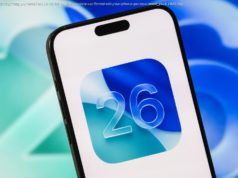The government could still appeal a court ruling allowing the merger. In the meantime, the two companies can close their deal.
The Justice Department will not seek an injunction against AT&T’s court-approved merger with Time Warner, allowing the companies to close their $85.4 billion deal almost 20 months after it was first announced.
The department had six days to seek an injunction after a federal judge approved AT&T’s purchase of Time Warner on Tuesday. That decision is expected to prompt a series of other mergers, especially in the media industry.
However, the Justice Department still has 60 days from the date of the ruling to file an appeal, even if the companies close the merger, and such a filing remained a possibility.
“We are still considering whether or not to appeal,” a spokesman for the department said Thursday.
There was a time limit on when the government could seek an injunction, because the merger agreement between the companies expires on June 21. If an injunction had been granted, the companies would have had to extend the date or AT&T would have had to pay Time Warner $500 million in what is known as a reverse termination fee.
The Justice Department challenged the deal, saying that the telecom company’s acquisition of Time Warner would lead to fewer choices for consumers and higher prices for television and internet services. But the judge, Richard J. Leon of United States District Court in Washington, ruled emphatically in favor of the companies.
He also took the unusual step of strongly warning the government against trying to stop the merger with an emergency stay.
The defeat of the government’s antitrust challenge raises questions about the future of merger reviews and whether the agency will be able to aggressively resist corporate consolidation going forward.
Makan Delrahim, the head of antitrust at the Justice Department, had been adamant that the merger should be opposed because he said that cable subscribers would see higher prices, and that the development of streaming video would be hampered by the merger.
The agency could have a difficult time winning an appeal, many experts said. The judge’s ruling was narrow and avoided sweeping statements about antitrust laws or other cases, the experts said.
“The ultimate question is whether Judge Leon made legal conclusions that are unconventional or controversial,” said Paul Glenchur, a senior telecommunications analyst for Hedgeye Potomac Research. “We think he largely avoided the possible pitfalls.”






![Drony nad Polską. Oto kiedy naruszały naszą przestrzeń powietrzną? [KALENDARIUM]](http://nhub.news/wp-content/uploads/2025/09/thumbb0c02e8630e5456d5896703b98be9600-100x75.jpeg)